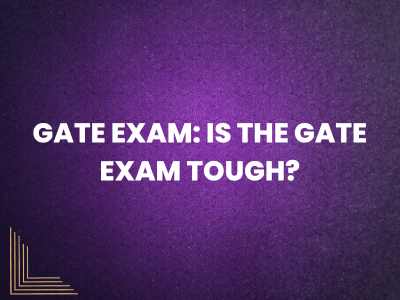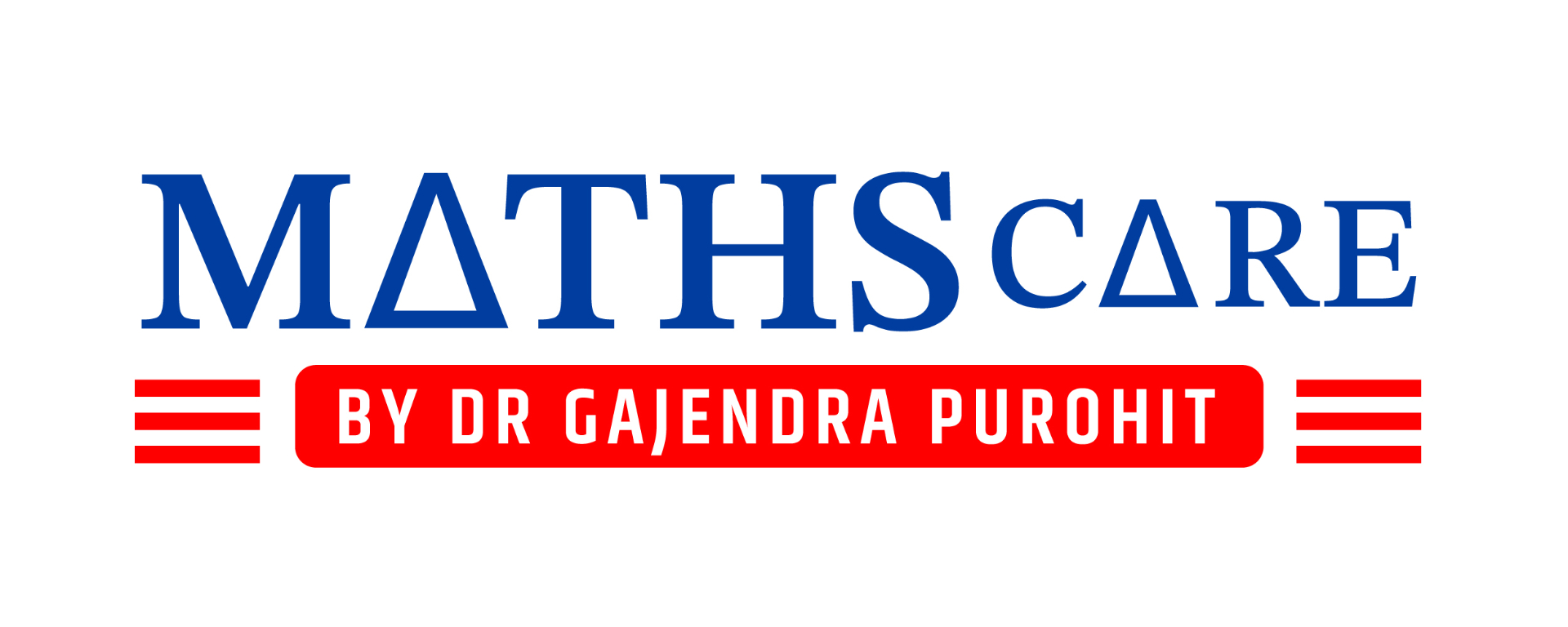
GATE Exam 2025: Is the GATE Exam Tough?
Introduction :
If you’re considering taking the GATE Exam 2025 (Graduate Aptitude Test in Engineering), the thought of whether it’s a tough exam has probably crossed your mind. This exam is a significant stepping stone for engineering graduates aspiring to pursue higher education in top institutions or land a job in PSUs (Public Sector Undertakings). It’s known for its rigor and complexity, but is it truly as tough as people say? Let’s delve into the details and find out what makes the GATE exam challenging yet achievable. . GATE is a critical exam for advancing careers in engineering and sciences, known for its difficulty but also its potential for success.
What is the GATE Exam?
The GATE exam is a national-level test that evaluates your knowledge in undergraduate engineering and science subjects. It serves as a gateway to M.Tech and Ph.D. programs in prestigious institutions like the IITs and IISc, and is also used for recruitment by various PSUs. GATE isn’t just an academic exam; it’s a career-defining opportunity for those seeking advancement in technical fields. The exam is conducted by the IITs and IISc on behalf of the National Coordination Board. Each year, the exam witnesses lakhs of aspirants, making it one of the most competitive exams in India. . GATE is a high-stakes exam, offering access to advanced education and job opportunities in India’s top institutes and PSUs.
GATE Syllabus:
The syllabus for GATE is broad, covering topics from different engineering streams like Mechanical, Civil, Electrical, Computer Science, and more. Each paper focuses on core subjects relevant to the specific stream, coupled with general aptitude questions. The syllabus is designed to test a deep understanding of undergraduate-level concepts, making it challenging. This isn’t an exam where cramming the night before will suffice; you’ll need a well-structured study plan that involves revisiting foundational concepts, solving complex problems, and consistent practice. It’s a test of both your knowledge and problem-solving abilities, demanding both breadth and depth of study. . GATE has an extensive syllabus that tests both your conceptual knowledge and practical problem-solving skills, requiring thorough preparation.
GATE Exam: Paper Pattern
| Particulars | Details |
| Mode of Examination | Computer Based Test (CBT) [conducted at select centers in select cities]; English language only |
| Duration | 3 Hours* |
| Number of Subjects (Papers) | 30 |
| Sections | General Aptitude (GA) + Candidate’s Selected Subjects |
| Type of Questions | (a) Multiple Choice Questions (MCQ), (b) Multiple Select Questions (MSQ), (c) Numerical Answer Type (NAT) Questions |
| Questions for Testing Abilities | (a) Recall, (b) Comprehension, (c) Application, (d) Analysis & Synthesis |
| Mark Distribution (All Papers Except AR, CY, DA, EY, GG, MA, PH, ST, XH, XL) | General Aptitude: 15 marks; Engineering Mathematics: 13 marks; Subject Questions: 72 marks; Total: 100 marks |
| Mark Distribution (AR, CY, DA, EY, GG, MA, PH, ST, XH, XL) | General Aptitude for 15 marks where Subject Questions for 85 marks Total: 100 marks |
| Marking Scheme | Questions carry 1 or 2 marks each; Negative marking for MCQs only: 1/3 mark for 1-mark MCQs, 2/3 mark for 2-mark MCQs |
| Negative Marking | No negative marking for MSQ or NAT questions; no partial marking for MSQs |
| Total Marks | 100 |
| Total Time | 180 Minutes |
GATE Eligibility Criteria:
To appear for the GATE exam, you must have completed or be in the final year of your Bachelor’s degree in Engineering, Technology, Architecture, or a related field. Students in their final year of a Master’s degree in Science or relevant fields are eligible. The GATE exam doesn’t impose any age restrictions, which opens doors for a wide range of candidates, including working professionals looking to upskill. This flexibility makes it an appealing option for those who may have taken time off after their undergraduate studies and are now looking to return to academics or advance their careers. . GATE offers flexible eligibility, making it accessible to a broad range of candidates, including working professionals.
GATE Cutoffs:
Cutoffs in the GATE exam vary depending on the stream, difficulty level of the paper, and the number of candidates. For popular streams like Computer Science and Mechanical Engineering, the cutoffs can be relatively high, often ranging between 25 to 35 marks out of 100. However, just meeting the cutoff won’t guarantee you a spot in top institutions or PSUs. For that, you’ll need to aim for significantly higher marks. The competition is fierce, and the cutoffs serve as a baseline to shortlist the best-performing candidates. Staying updated on previous years’ trends can give you a rough idea of where to set your goals. . GATE cutoffs vary annually and across streams, but achieving higher marks is essential for top-tier opportunities.
GATE Difficulty Level:
Now, let’s get to the core question: Is GATE tough? The short answer is yes, but it’s not unbeatable. The vast syllabus, coupled with the need for both theoretical understanding and practical application, makes GATE a challenging exam. However, it’s not just about hard work; it’s about smart work. Strategic preparation, focusing on key areas, and consistent practice can help you navigate the difficulty. The difficulty level also varies across different papers, with some engineering streams being more challenging than others. However, students who approach the exam with a well-planned study schedule and utilize resources like coaching, mock tests, and study groups often find the GATE exam manageable. . GATE is tough, but with the right strategy and consistent preparation, success is achievable.
Job Opportunities After GATE:
GATE isn’t just a ticket to higher education; it opens up lucrative job opportunities. Many PSUs, including giants like ONGC, IOCL, and NTPC, recruit engineers based on their GATE scores. These jobs come with the added perks of job security, good pay, and benefits. Additionally, a strong GATE score helps you pursue research opportunities in top institutions or even secure positions in academia. Whether you’re looking to continue your studies or jumpstart your career, the GATE exam provides multiple pathways to success. . GATE provides diverse opportunities, including secure jobs in PSUs and access to advanced research and academic roles.
Conclusion:
So, is the GATE exam tough? Yes, but it’s a challenge worth taking . With a vast syllabus and stiff competition, GATE tests not only your knowledge but also your resilience and determination. However, for those who prepare strategically, it’s an exam that opens doors to some of the best educational and job opportunities in India. If you’re ready to put in the effort, GATE can be your key to unlocking a bright future. GATE is challenging, but with dedication and smart preparation, it offers unparalleled opportunities for career and academic advancement.
Courses Offered:



Buy our best-selling books on Flipkart and Amazon
Tag:GATE aptitude section, GATE career options, GATE CBT exam, GATE cutoff, GATE eligibility criteria, GATE engineering entrance, gate exam, GATE exam 2025, GATE exam coaching, GATE exam difficulty, GATE exam format, GATE exam paper analysis, GATE exam paper pattern, gate exam preparation, GATE exam registration, GATE exam results, GATE exam strategy, gate exam tips, GATE exam tough or easy, GATE job opportunities, GATE negative marking, GATE question types, GATE score, GATE study guide, GATE Syllabus



